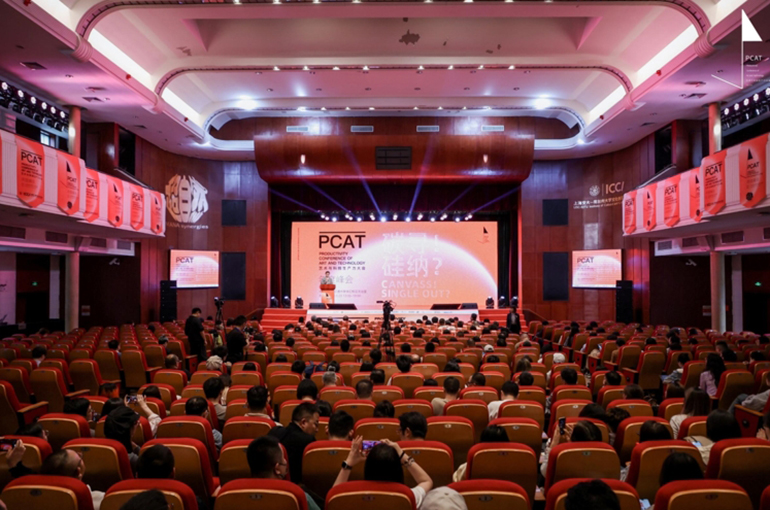 Shanghai Art-Tech Conference Explores AI’s Creative Frontier
Shanghai Art-Tech Conference Explores AI’s Creative Frontier(Yicai) May 27 -- Shanghai's Second Productivity Conference of Art and Technology is spotlighting the challenges and opportunities that artificial intelligence presents to the creative industries, further solidifying its role in the eastern city’s cultural scene.
Empowering artistic creation through technology is becoming the new normal, said Zhang Weimin, dean of the USC-SJTU Institute of Cultural and Creative Industry, during the opening forum of the conference, which runs through May 30. From AI-generated content to interactive metaverse experiences, the creative sector has entered a new era of “co-creation between humans and machines," Zhang added.
The Productivity Conference of Art and Technology (PCAT), now in its second year, is co-organized by the cultural organization Mana Synergies and the USC-SJTU Institute of Cultural and Creative Industry, a collaborative academic institution founded by Shanghai Jiao Tong University and the University of Southern California.
In his speech, Zhang emphasized the decisive role of human subjectivity in guiding technological development. In the face of challenges such as AI-driven content generation, algorithmic aesthetic recommendations, and copyright concerns, he stressed that universities must cultivate interdisciplinary talent -- those with aesthetic sensitivity, technical expertise, and business acumen.
Zhang Qinghong, Chairman of Mana Synergies, outlined the PCAT’s strategic vision. He proposed that the conference evolve into a hybrid platform combining an art festival and exhibition fair, fostering industrial collaboration and the sustainable commercialization of art and technology through performances, panels, networking, and trade.
For the second straight year, Shanghai-based financial media agency Yicai Media Group, along with its English-language subsidiary Yicai Global, joined the conference as official media partners. Yang Yudong, editor-in-chief of Yicai, discussed the transformation of journalism in the age of AI.
AI, social media, and information overload are reshaping traditional journalism, where authenticity and credibility are becoming increasingly scarce, Yang said. Financial media must rely on professional rigor and data capabilities to deliver sound judgment and uphold the social responsibility of telling the "truth," he added.
The forum gathered thought leaders in art and technology, including Zheng Fei, head of digital governance at Tencent Cloud in East China; Lin Fanjun, president of the Shandong Academy of Arts; and Yuan Qiao, deputy chief engineer at the Fudan Planning and Architectural Design and Research Institute.
Several international new media artists also joined virtually. Among them were Mariano Sardón, who merges neuroscience and computer animation with art, and Neil Mendoza, a British artist known for interactive installations like machines that physically respond to spoken words. Soh Yeong Roh, founder and director of the Nabi Art Center in Seoul, and Alain Thibault, artistic director of the Elektra International Digital Art Festival in Montreal, also shared their perspectives remotely.
Editors: Dou Shicong, Emmi Laine